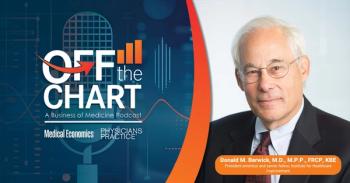
Physicians and the Politics of Obamacare
A new Kaiser Family Foundation poll indicates that 47 percent of Americans don’t like the ACA, but 56 percent would keep it. Why the confusion? Politics.
If you think you’re confused about the Affordable Care Act (ACA), you're not alone. A new Kaiser Family Foundation
Here’s the lay of the land on the political front:
Senate Majority Leader Harry Reid has all but called every last one of the people caught in the inevitable insurance loopholes and coverage gaps of the ACA liars. The Administration fudges figures and President Obama earned the “
On the other side of the aisle, Senator Ted Cruz, Congressman Paul Ryan, and a host of others parade the tens of thousands of folks caught in the wheels of this massive legislation as if they are the majority. The House has voted over 50 times to defund or repeal the ACA in a futile show of parliamentary symbolism.
Politicians on both sides demonize insurers for canceling millions of now illegal policies and creating narrow networks in an attempt to comply with financial restrictions of the health insurance exchanges. Physicians decry being excluded from those networks when most are well shed of the financial hardship they bring with their puny reimbursements.
In the process, hundreds of millions in taxpayer dollars are lavished on trying to convince young people to buy insurance they can’t afford and rarely need to keep the new system from collapse, even though the IRS lurks in the shadows to enforce compliance.
Liberal leaning media purrs and conservative leaning media barks. Both selectively report the facts.
Now, here’s the odd part:
Everyone ignores or fails to grasp that the ACA will spread instead of address an estimated $8 trillion in healthcare system waste over the 10-year budget term, while shifting the costs of the program onto the middle class and Medicare recipients. Premiums decrease for some, increase for others, and deductibles increase for virtually all.
While it seems that there are more losers than winners, the real question for physicians, who are caught in the crossfire, is what to say and what to do.
The first step is to carve out the political attacks as pandering to the base and the media omissions as pandering to the audience. That should be easy. Physicians are trained in critical thinking, and the required data points are all there. Pay attention to the people who agree with you, and pay attention to those who don’t. The truth becomes apparent by assessing the reporting and omissions of both.
The second step is to heed the advice of Albert Einstein who said, “We cannot solve our problems with the same thinking that created them.” There are a lot of new ideas, business models, software tools, networks, and strategies being formed and implemented in different combinations.
The third is to, with clinical impartiality, analyze, strategize, and plan what is best for you and your family, and then act. If you believe the best course is to stay independent, new options are available such as joining one of the new, at risk or shared savings independent provider networks that focus on team care using a common population health and information platform. If you believe the best course is to become employed by a system, those options are available, too.
There are many plusses, minuses and risks to be assessed. In most cases, follow the dollars, consider quality of life, and determine whether the options match your personal goals. Think long term.
The clinical impartiality component of this step is the most important because what you want, and what you need to get what you want, are not always obvious and the time frame is not always optimal.
One thing, however, is optional: commitment. Always leave a way out. The grass may seem to be greener, but, you still have to mow it.
Newsletter
Optimize your practice with the Physicians Practice newsletter, offering management pearls, leadership tips, and business strategies tailored for practice administrators and physicians of any specialty.








